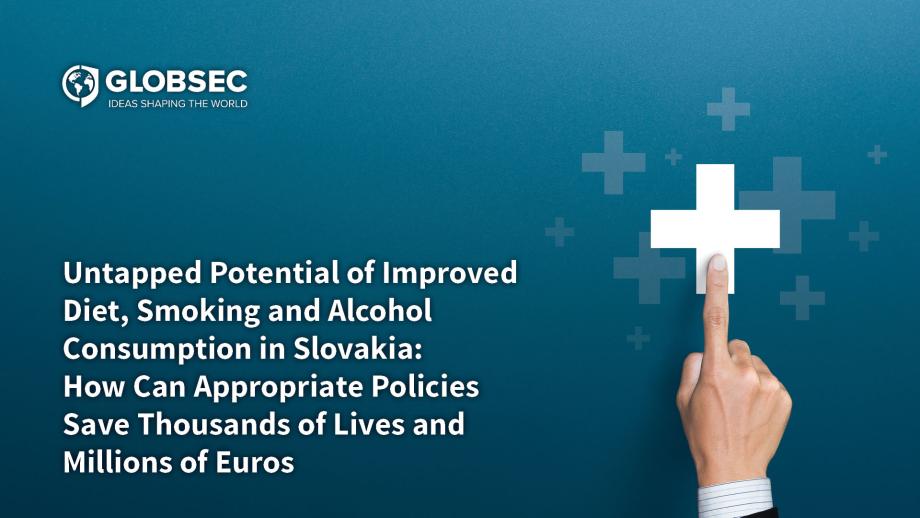Untapped Potential of Improved Diet, Smoking and Alcohol Consumption in Slovakia: How can Appropriate Policies Save Thousands of Lives and Millions of Euros

Nearly 20 thousand deaths could have been avoided if appropriate treatment or preventive measures were available in Slovakia. Some of these are a result of poor access to innovative medicines and long waiting times for treatment. The greatest potential for improvement lies in individual risk factors, such as diet, tobacco, and alcohol consumption.
In fact, dietary risks contributed to 26 % of all deaths in Slovakia in 2019, compared to the EU average of 17 %. Even though alcohol and tobacco consumption is compared to the rest of the EU, Slovakia has a massive potential to improve health outcomes, if appropriate policies are implemented.
The aim of this study is to analyze key risk factors in more detail and calculate benefits if appropriate public policies were implemented.
Slovakia has some of the highest rates of diet-related deaths in the OECD, which is why the effect of potential policies would be significant: a trans-fat reduction (1,200 prevented deaths), sodium reduction (1,600 prevented deaths), 30% sugar-sweetened beverage tax (500 prevented deaths) and 10% fruit and vegetable subsidy (460 prevented deaths) are just four of many potential policies that Slovakia could adopt. In addition to lives saved, these policies would bring savings of 40 million euros in the healthcare budget annually and hundreds of millions in savings in other sectors over medium to long term.
Smoking should become almost invisible. Bans on smoking in public places and everywhere around children would not only decrease the social function of smoking but also make it less visible for current non-smokers, especially among youth, considering taking up smoking. The reduced risk products, while not without harm, should have taxation levels that reflect the underlying understanding of their lower levels of harm. Doctors should also be incentivized monetarily to encourage smoking cessation. These policies could have immense effects. More than 91-thousand years could be saved among smokers in case of full cessation and even a 50% switch to reduced-risk products could save more than 31-thousand years in the lives of smokers. These policies would save at least 14,5 - 50,5 mil. EUR per year from public health insurance resources.
Lastly, alcohol drinking is effectively impossible to fully prohibit, so the most rational policy would be to incentivize drinking of alternatives with lower content of alcohol, such as wines or lighter beers. To mitigate the highest risk of alcohol-induced behaviors, the sale of alcohol after 22:00 in shops should be banned. Additionally, raising the drinking age to 21 with better enforcement would also aid in lowering the impacts of both alcohol itself and its behavioral effects on youth. The effects of these policies would be lower as compared to improving dietary factors or limiting smoking since they would only lower the rate of drinking, the extent of which is socially limited.
The purpose of this document is not to provide final policy suggestions but to create a starting point for debate so the most viable and effective measures are selected. Hence, the paper will be discussed firstly with professional and expert groups to analyze selected policies and tools in more detail. The updated document will be consequently discussed with representatives of ministries, politicians, and policymakers.
Find the PDF version below to read the full report.

